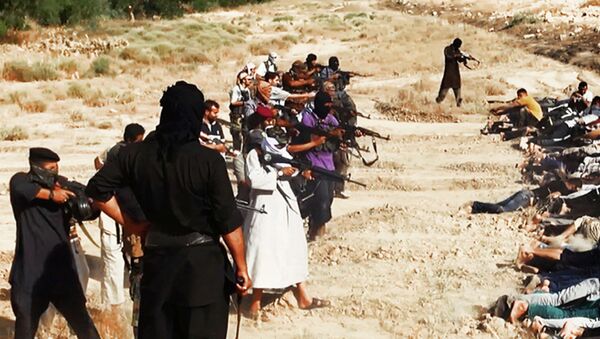Labour MP Khalid Mahmoud believes as many as 2000 British citizens may have gone to fight in Iraq and Syria alongside the Islamic State.
The number is far higher than the ballpark figures of 400-500 cited by the British authorities in recent months.
Mr Mahmoud, Labour Member of Parliament for Birmingham Perry Barr, said he based the estimate on his own experience as MP of an area with a large Muslim population: "I think 2,000 is a better estimate. My experience in Birmingham is that it is a huge, huge problem."
The comments come as the Foreign Office investigated reports this weekend that a further two British men had been killed fighting in the town of Kobane in Syria.
One of the men, 21 year old Abu Abdullah al Habashi, is reportedly a British-Eritrean from London.
Social media have given clues about how many Britons may be fighting in Syria. Many members of the so-called Islamic State are prolific social media users, but not all of their content can be verified.
Mr Mahmoud criticized lax UK border controls. "We have had hardly any arrests. We have had people coming back in after six months in Syria and they are not being picked up", he said.
Rumy Hasan is a senior lecturer on multiculturalism at the University of Sussex. He said, "It's difficult to gauge the exact figure but Mahmoud, as an MP in a city with a large Muslim population will have a fair idea — so the numbers he gives need to be taken seriously."
Home Secretary Theresa May has just unveiled a new counter-terrorism bill which aims to give the security services stronger powers to monitor online exchanges.
But previously proposed anti-terror bills have been controversial, with civil liberties campaigners saying these measures could severely hamper citizens' privacy rights.
The new law will give the police the power to demand information from internet companies.
Some critics say it would be a revival of the so-called "snoopers' charter".
"The bill provides the opportunity to resolve the very real problems that exist around IP resolution and is a step in the right direction towards bridging the overall communications data capability gap," said Theresa May.
The bill will compel internet service providers to retain information that can lead to the IP addresses of suspicious individuals.
The Home Secretary's initiative has met a sharply critical response from the Islamic Human Rights Commission (IHRC), a British charity. In a press release IHRC describes the suggested week-long national police initiative to raise awareness of terrorism as ‘ill thought out' and says it will ‘only serve to further alienate Muslims'.
IHRC chair Massoud Shadjareh said: "Government anti-terrorism policy is in total disarray and governed by the needs of foreign policy rather than the aim of preventing terrorism."
Massoud Shadjareh also reacted to the way the media and the authorities appeared to treat recent reports to the effect that at least two former British servicemen were fighting against ISIL, saying, "…the fact that British non-Muslim fighters are now publicly known to be fighting in Syria without any apparent risk of being prosecuted under anti-terrorism laws on their return shows just how discriminatory their application is vis-a-vis the Muslim community. Any anti-terrorism policy must be coherent and consistent in prosecuting all terrorism and war crimes, not just those the government finds expedient."


